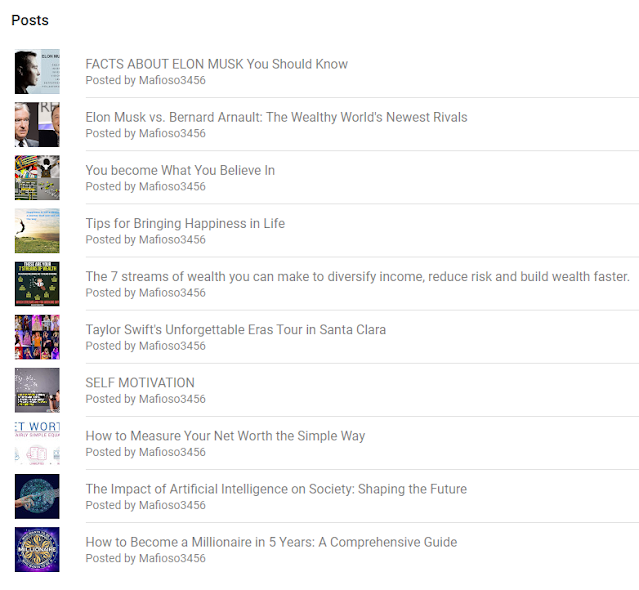You become What You Believe In
Have you ever wondered how your beliefs shape your reality? Do you believe that you are capable of achieving your goals, or do you doubt yourself and your abilities? Do you believe that you are worthy of love, happiness, and success, or do you feel unworthy and undeserving? Do you believe that you have control over your life, or do you feel powerless and helpless?
Your beliefs are not just opinions or preferences. They are powerful forces that influence your thoughts, feelings, actions, and outcomes. They can either empower you or limit you, depending on whether they are positive or negative, true or false, helpful or harmful. Your beliefs can either align with your true potential and purpose, or they can contradict and sabotage them.
The good news is that you can choose what to believe in. You can change your beliefs if they are not serving you well. You can create new beliefs that support your growth and happiness. You can become what you believe in.
How do beliefs work?
Beliefs are mental representations of how you perceive yourself, others, and the world. They are based on your past experiences, observations, interpretations, assumptions, and expectations. They are often subconscious and automatic, meaning that you may not be aware of them or question them.
Beliefs act as filters that determine what information you pay attention to and what information you ignore. They also act as lenses that color how you interpret and evaluate the information.
For example, if you believe that people are generally kind and trustworthy, you will notice and appreciate their positive qualities and actions. You will also give them the benefit of the doubt and forgive their mistakes. However, if you believe that people are generally selfish and dishonest, you will notice and magnify their negative qualities and actions. You will also distrust them and blame them for their faults.
Beliefs also influence your emotions and behaviors. They trigger certain feelings and reactions in response to different situations. For example, if you believe that you are smart and capable, you will feel confident and motivated when facing a challenge. You will also take action to overcome the challenge and achieve your desired result. However, if you believe that you are stupid and incompetent, you will feel insecure and anxious when facing a challenge. You will also avoid taking action or give up easily.
Beliefs also shape your outcomes and reality. They create a self-fulfilling prophecy that makes your expectations come true. For example, if you believe that you are lucky and successful, you will attract more opportunities and resources to support your goals. You will also perform better and achieve more results. However, if you believe that you are unlucky and unsuccessful, you will repel or miss out on opportunities and resources to support your goals. You will also perform worse and achieve less results.
How can you change your beliefs?
As you can see, your beliefs have a profound impact on your life. They can either help you or hinder you in reaching your full potential. Therefore, it is important to examine your beliefs and identify which ones are beneficial and which ones are detrimental. Here are some steps to help you change your beliefs:
1) Identify your limiting beliefs. These are the beliefs that hold you back from achieving your goals or living your dreams. They often start with "I can't", "I'm not", "I don't", "I shouldn't", "I won't", etc. For example, some common limiting beliefs are:
- I can't do anything right.
- I'm not good enough.
- I don't deserve happiness.
- I shouldn't ask for what I want.
- I won't ever succeed.
2) Challenge your limiting beliefs. These are the beliefs that are not based on facts or evidence, but on fear or insecurity. They are often irrational, exaggerated, or distorted. You can challenge them by asking yourself questions such as:
- Is this belief true?
- What evidence do I have to support this belief?
- What evidence do I have to contradict this belief?
- How does this belief serve me?
- How does this belief limit me?
- What would happen if I let go of this belief?
3) Replace your limiting beliefs with empowering beliefs. These are the beliefs that support your goals and dreams. They often start with "I can", "I am", "I have", "I should", "I will", etc. For example, some common empowering beliefs are:
- I can learn from my mistakes.
- I am worthy of love.
- I have what it takes to achieve my goals.
- I should pursue my passions.
- I will overcome any obstacle.
4) Reinforce your empowering beliefs. These are the beliefs that need to be repeated and practiced until they become ingrained in your subconscious mind. You can reinforce them by using various techniques such as:
- Affirmations: These are positive statements that you say to yourself or write down on a regular basis. For example, you can say or write: "I am confident and capable."
- Visualization: This is a mental exercise that involves imagining yourself in a desired situation or outcome. For example, you can visualize yourself giving a successful presentation or receiving a promotion.
- Meditation: This is a practice that involves focusing your attention on your breath, a mantra, or a positive thought. For example, you can meditate on the phrase: "I am calm and focused."
- Action: This is the most powerful way to reinforce your beliefs. It involves taking steps to achieve your goals or live your dreams. For example, you can take a course, apply for a job, or start a project.
By changing your beliefs, you can change your life. You can become what you believe in. You can create your own reality. You can achieve anything you set your mind to. You can be happy and fulfilled.
Remember, the only limit is your imagination.👌
You Become What You Believe In






Comments
Post a Comment